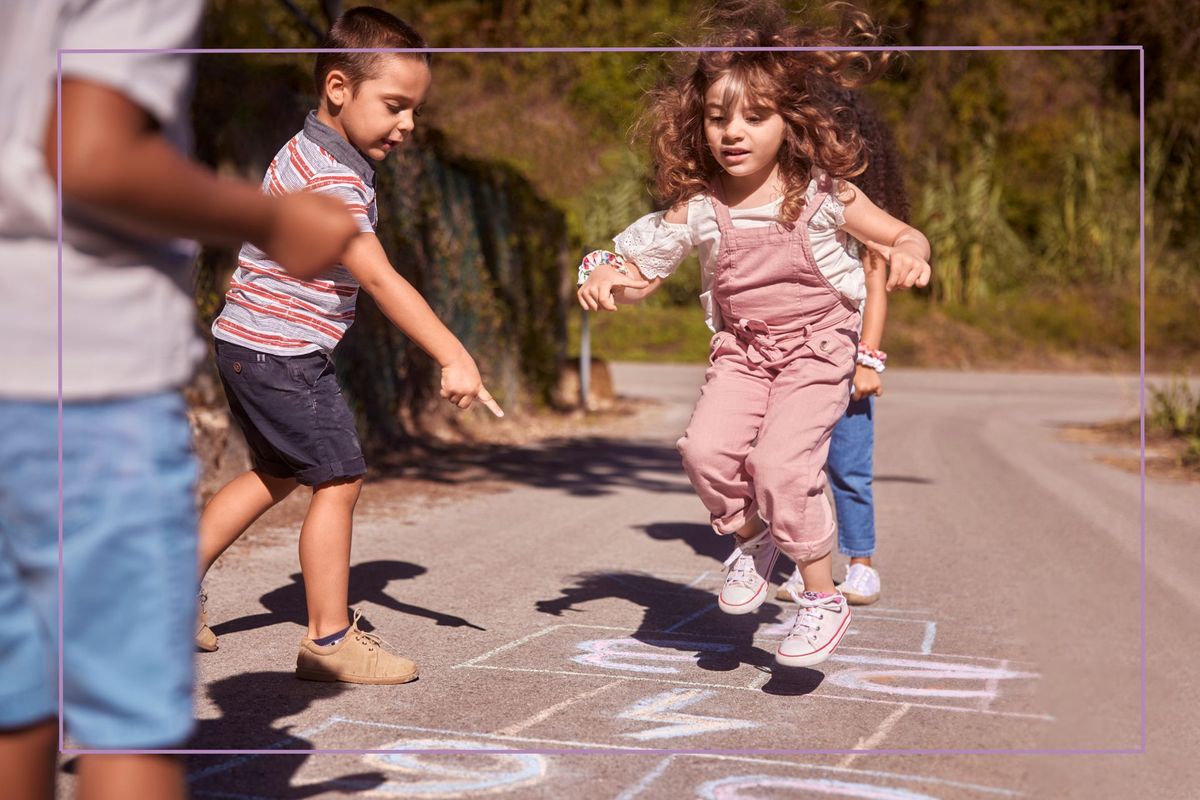‘Go make friends’, this is an all-too familiar throwaway comment, usually uttered as parents throw open the gate to the play park. Like children are somehow wired to know how to make friends, spoiler: they’re not. Social skills are called a skill for a reason, they take training and practice.
Making friends can be hard; it’s not as simple as ‘they like Hot Wheels/Bluey/TikTok too’; it takes social communication skills, which many adults struggle with, let alone kids with underdeveloped brains and emotions. Trying to make and keep school friendships can seem like an uphill climb.
Social communication skills are a set of verbal and non-verbal abilities used to navigate relationships and friendships, signal our own, and read the intentions of others during two-way interactions. Social communication abilities are needed to create and keep friendships and include;
- Listening skills
- Eye contact
- Non-verbal communication (body language)
- Awareness of the listener’s needs
- Ability to communicate our message
- Ability to stay on a topic while interacting with others
Children need social communication skills to build strong friendships with their peers and to have a sense of belonging. Equally, social communication skills help children and young people to engage with their peers, particularly in structured situations such as group work in class and during unstructured time, like break times.
Having friends is so important for school-aged children – both primary and secondary school ages. And, this ability continues to be necessary for some young people as they prepare for adulthood and enter further education or the workforce. Any issues your child has making and keeping friends will likely stem from the struggle to understand that the feelings, values, and experiences of others can differ and be unique from their own.
Let’s explore how to support children in developing play skills, using their voices, understanding social dynamics, and increasing their social communication skills to cope better with friendships.
Expectations
This one is a biggy for me; the importance of having fair expectations of children and what they are able to do and understand is critical.
Adults need to understand where children are developmentally rather than just by their age when exploring their social skills. Try observing them in social situations and if you can, keep a journal that you can refer to. The Department of Education – Development Matters’ (2001) guidance highlighted the following regarding stages of play and socialising:
Early years: – At ages 0-2, children are expected to engage in solitary play and may copy their parents’ actions, such as pretending to talk on the phone. However, children in this age group should not be expected to approach a child to say hello without being prompted or expected to share, wait, or take turns as their amygdala (part of the brain) has simply not developed the social signals to engage in effective reciprocal (two-way) interactions.
Ages 2-2.5 years – children are likely to engage in spectator play, which is when they observe others rather than join in.
Under ages 2.5-3 years – they may have developed language skills, and some can communicate; however, it is easy to think that they have the skills to regulate their emotions and socially interact with others without adult support; however, this should not be an expectation. They are also more likely to engage in parallel play when they play next to their peers but do not necessarily play cooperatively. Pretend play starts to develop, but they will likely struggle with sharing, being rational, waiting, and turn-taking.
Ages 3-4 years – children are likely to engage in group work where they are doing the same activity with others but may not be able to work together or make connections with peers. Imaginative play develops, such as dressing up games and making up stories.
Age 4-6 years – children begin to learn cooperative play and can form friendships. At these ages, children are more likely to learn to play with their peers using social skills (e.g., interpreting facial expressions, sharing, waiting and turn-taking) with each other.
Why do some school-aged children and young people struggle to make friends as they grow?
Once children begin school, it is often assumed that they will automatically learn and know how to handle social dynamics whether in a structured (e.g. group work at school) or an unstructured situation (e.g., at a birthday party), but some need to be explicitly taught and modelled to. For example, some children have reduced conflict resolution skills and will often display unsafe behaviours (e.g., physical aggression) as a form of coping mechanism to deal with situations that they find unpleasant (e.g., not getting their way).
Some children and young people need adults to model appropriately safe behaviours. How to respond in different situations, which most children pick up automatically, but some need to be taught explicitly and reminded consistently, and that’s okay. It’s unreasonable to think that because you told them how to do it once, they’ll remember always.
The research tells us that children with social skills difficulties often struggle with understanding and voicing that. A recent study reported that children with lower verbal and receptive language skills are at a higher risk of social communication difficulties, making it harder for them to make friends. Practical tips to help your children develop social skills to form and sustain friendships:
1. Role play and modelling
Adults can model and demonstrate to children how to gain attention appropriately from their peers by engaging in role play and highlighting examples (e.g., poking your friend is an unhelpful strategy to gain their attention). It is important to offer appropriate praise and encouragement to children while teaching social skills. Role-play can also be used to explicitly teach children how to interpret and use language in social situations. For younger children, the use of puppets can be useful to engage in role play while they observe.
2. Reminders and prompts
When discussing with your children, it is essential to notice that if they digress from the points of discussion, remind them of the key points; if they have answered questions sufficiently, stop them and indicate that they have provided enough information. Such skills will help them sustain their focus on discussions when engaging with others and sticking to their points, which would be helpful in social situations and learning and group tasks at school. Adults should use simple language when engaging with children to support their understanding of the discussion and new skills that they are taught.
3. Social stories and scripts
To support the building of conflict resolution skills, children will continue to need frequent opportunities to reflect, use self-monitor and self-correction techniques and develop their emotions and reactions to situations, considering the consequences of their actions (both positive and negative) and possible alternative actions and paying attention to the feelings and views of others. Check out this video on setting boundaries for kids.
Using role-play, play scripts and social stories may provide a forum for developing such skills and discussing alternatives to develop children’s choice in selecting more appropriate behaviours / positive responses to situations. Additionally, simple social stories and play scripts, role play, etc., can be used to model how to respond in different situations and socially appropriate behaviours and to begin considering their actions’ impact on others. Engage in role reversals – where the child takes on the leader/parent role in some circumstances to check their understanding of the social skills you have taught. If you’ve never done a social story before find out more and how to use social stories.
4. Feedback and praise
Intervene as situations arise and provide positive feedback as often as possible when children are interacting positively with their peers. If your child has siblings or other friends in their community, you could also engage them in small group work and focus on teaching what helps group dynamics function well and how to discuss, exchange ideas, initiate contact, and make friends. Such sessions could occur at home or in other areas of your community.
Suppose you are consistently concerned about your child’s struggles to form friendships and develop social communication skills. In that case, speaking to your child’s preschool or school’s Special Educational Needs Coordinator (SENCO) to explore this issue and the possibility to enrol them in an evidence-based social skills programme/ intervention such as ‘Circle of Friends’ and Talk Boost is advisable. You may also request further investigation of this area by the relevant health and educational services (e.g., Paediatrician and Educational Psychologist).
Additional help
For preschool and school-aged children:
ELSA / Social Skills Game | Teaching Resources
Healthy Relationships + Friendships PSHE | Teaching Resources
Friendship worksheets | Teaching Resources
For teenagers:
Preparing for Adulthood: Friends & community – National Development Team for Inclusion
Understanding your kids developmental stages will help as well as how to start a conversation about mental health with your kids, to talking about puberty. Plus, did you know that watching Disney movies can be good for your child’s emotional development?




















